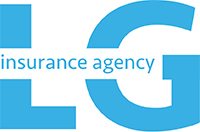Government Shutdowns, Capacity Limitations, and Business Insurance
As business owners attempt to navigate the current uncertainties brought on by the COVID-19 pandemic, it may be easy to feel a bit overwhelmed. With impacts on businesses caused by state and local government shutdowns, limits on capacity within businesses, and costs associated with making necessary adjustments to guarantee compliance with safety ordinances, business owners have more to manage than ever before. Fortunately, while there aren’t answers to every question and concern a business owner may have relative to navigating these unprecedented times, there are some precautions that can be taken to mitigate further risks.
What type of insurance would cover losses associated with government shutdowns or capacity limitations?
Businesses of all kinds need to obtain the appropriate policies for their specific business, and to protect themselves as owners. It’s likely that any commercial property insurance policies purchased will include business interruption coverage, which is designed to cover losses should your business have to abruptly shut down. Depending on the policy, there may also be contingent coverage for losses that result from the closure of a supplier integral to the business. There are also policies that allow for the coverage of rents unpaid by tenants when occupancy is terminated due to a direct physical loss. However, whether your policy will cover these losses due to interruption is dependent on your individual policy’s language.
Generally, BI coverage is triggered by a “direct physical loss” to your business’s property, forcing a closure. Government shutdowns or capacity limitations may not be the correct circumstances to trigger this “direct physical loss,” unfortunately. While many businesses have closed, or will close, in direct response to COVID-19 concerns or associated risks, if the building remains habitable, the physical loss requirement is not met. If the building is determined to have been physically contaminated, for example, after the presence of a confirmed infected person, those circumstances may qualify as triggering coverage.
The language in most policies, particularly those for smaller businesses frequently includes provisions that aim to exclude coverages for business losses that result from viruses or bacteria. However, there has been legislation introduced in New Jersey, as well as Ohio and Massachusetts currently that will nullify this potential exclusion. There are also several lawsuits occurring regarding the payment of claims from COVID-19 related losses, and this litigation is focused on the language of policies involved and circumstances related to business interruption coverage. While these suits are still pending and the results are uncertain, business owners may still submit claims- particularly if business operations have been impacted by the shutdowns and capacity restrictions.
What if I don’t currently have coverage? Is it too late to get the best insurance coverage?
In short, it’s never too late to get the best coverage for your business, and as mentioned above, all business owners should seek complete and appropriate coverage for both themselves as owners and their businesses. Regardless of the current environment and the impacts of the pandemic, any business will still need general liability insurance, property coverage, and business interruption coverage to protect themselves and their company assets.
Unfortunately you can never anticipate what will happen, but by putting in place comprehensive insurance policies and protections, you can be better prepared for any catastrophes that could arise. The worst place to be in would be to experience a fire or other devastating event while already navigating the pandemic impacts and not have that coverage in place.
There are some challenges that those looking to insure their business may face when it comes to certain policies. Employment practices liability policies, cyber liability policies- these can present some issues now, and require more due diligence before a policy is likely to be issued.
When it comes to cyber liability, the concern is due to the large volume of ransomware and other cyber attack prevalence that has occurred during the pandemic. Cyber criminals are taking advantage of the many people now working from home to adjust their methods and attack with more frequency. This doesn’t mean that the policies are impossible to get- simply that there will need to be precautions taken on behalf of those looking to purchase a policy. Questions such as -are firewalls in place? Does your business have two-step authentication? Have you had security breaches or claims in the past? These are the kinds of things you’ll need to look at more carefully before purchasing a policy.
In regards to EPLI, or employment practices liability policies, the issues can be industry-specific. Underwriters will want to know why you are just purchasing a policy today, whether you’ve had a policy in the past, why you don’t have a current policy, and whether you’ve had any terminations. Have you recently downsized more than 25%? Are you planning to upsize as your business is growing? There are some classes of business, like hospitality, where purchasing new EPLI policies may be frozen if you didn’t previously have one. There are some markets that are willing to provide coverage, but that coverage would not be retroactive, and would only apply with a start date consistent with the purchase of the policy.
What does the future hold?
While you can’t literally predict the future, there are a few things in process that we can look to and anticipate. In May of this year, US Representative Carolyn Maloney (D-NY), introduced H.R. 7011, the Pandemic Risk Insurance Act of 2020 (PRIA). The bill would establish a federal backstop for business interruption (BI) insurance losses resulting from future pandemics, called the Pandemic Risk Reinsurance Program (PRRP). The bill would be retroactive consistent with what insurance policies you had in place in March, at the beginning of the pandemic. However, results regarding this bill are unlikely to be seen until after the conclusion of the election.
It’s best to look forward, rather than dwell in the past. The wisest thing is to consult with an expert if you have concerns about your policies or coverage, and take the steps now to protect yourself and your business if you haven’t already. Educating yourself, assessing the risks with a professional, and deciding how much risk you’d like to take on yourself versus what coverage you’d prefer in place will help you prepare for any future scenarios. Insurance is a way to protect what risks you’re taking as a business-owner aiming to make profits. Protecting the risk you’re taking is a normal, ongoing expense that is a part of every well-thought-out business plan.


